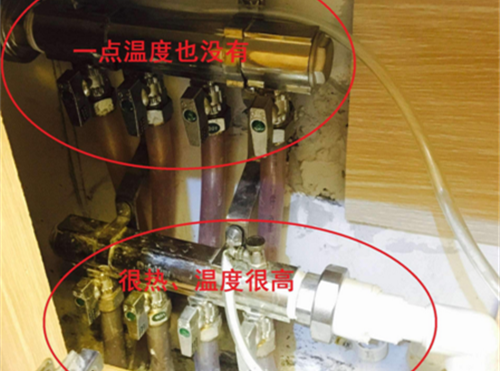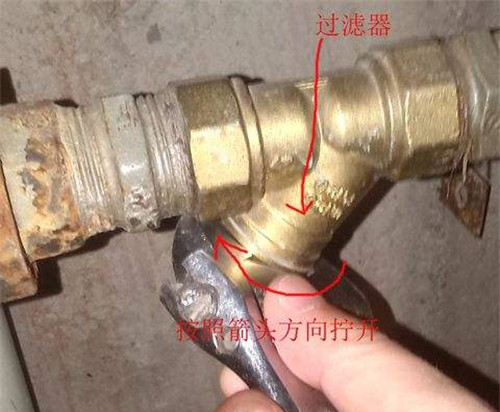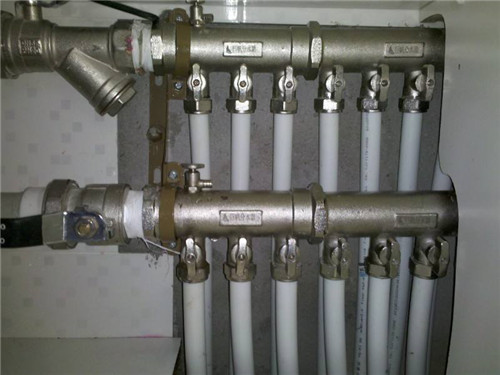In the winter you want to experience the warmth of spring it is only warm, really, although the cold northern winter, but it was only in outdoor, indoor heating are all measures will not have a cold, you can warm return pipe when the ground is not hot It's not warm anymore. What are the reasons for not being hot? What are the effective ways to solve it?

1. The pipeline pressure is not enough
The fact that the floor heating pipe is not hot may be caused by insufficient pipeline pressure. This phenomenon usually occurs in high-rise tenants. At this time, it is necessary to increase the pressure in the floor heating pipe to recycle. This is to find a property to solve.
2. There is gas in the pipeline
If the main bar in the floor is warm and the return bar is not hot, it will cause the floor heating pipe to be not hot . This is because there is gas in the floor heating pipe. At this time, the return valve needs to be closed and then opened. The exhaust valve will discharge the other inside.

3. Filter clogging
If the main water supply bar is not hot, it is very likely that the filter is clogged. This should be caused by water quality problems. At this time, the filter in the filter needs to be taken out for cleaning. This is to restore the water circulation.
4 to warm long-term does not clean
If your home's floor heating equipment is not regularly maintained or has not been cleaned for a long period of time, it is normal for floor heating pipes to be hot , because the floor heating pipes are just like the sewers, and the inside of the pipes will gradually narrow with scaling, and then The temperature is less likely to be emitted, so it is necessary to frequently clean the sludge, rust, and bacteria in the floor heating pipe.

5 loop uneven
If the user heating upstairs and downstairs is normal, then it is likely that the problems occurred in the construction of their own floor heating caused by uneven circulation, this time need to adjust the small valve on each circuit to promote circulation.
6. The valve is not open
If there is hot water in the inlet pipe and then there is hot water, if the floor heating pipe is not hot , it may be because the main valve is not opened. It can be checked by inspecting the supervisor and each valve in turn.

7. The water has not been discharged at the end of the heating period
The reason why the warm water return pipe is not hot may be because the water in the floor heating pipe was not completely discharged when the floor heating was used for the last time, and then the water stayed in the pipeline for more than half a year, causing too much sediment or scaling. As a result, this situation is very easy to damage the entire floor heating system.
8. Geothermal construction issues
The objective reason for not warming the return pipe to the ground may be due to construction personnel's experience or technical problems that cannot be solved. Whether the pipe is dead bent, flattened, or irregular in spacing, this phenomenon will occur.

Editor's summary: The above is about the warm water return pipe is not hot what is the reason and what solutions are introduced, when the floor heating has a lot to pay attention to, especially when the initial use every year is to do a good job related measures, especially In the warm-up is to pay attention.
Nails are essential tools in construction and woodworking. They are typically made of steel and are used to fasten pieces of wood, concrete, or other materials together.
1. Masonry Steel Nail: These nails are designed specifically for use in masonry and concrete. They are typically made of hardened steel, which allows them to penetrate hard surfaces without bending or breaking. Masonry steel nails are often used in construction projects involving brick, concrete, or stone.
2. Steel Nail For Concrete: As the name suggests, these nails are used specifically for fastening materials to concrete. They are made of strong, durable steel and are designed to withstand the pressure of being driven into concrete. These nails are often used in construction and renovation projects involving concrete slabs or walls.
3. Strong Concrete Nails: These are high-strength nails designed for use in concrete and other hard materials. They are often made of hardened steel or another durable material, and they are designed to resist bending, breaking, or otherwise failing when used in tough construction or renovation projects.
Nails,Masonry Steel Nail,Steel Nail For Concrete,Strong Concrete Nails
Hebei Aibuer trading co., Ltd , https://www.ablehardwares.com